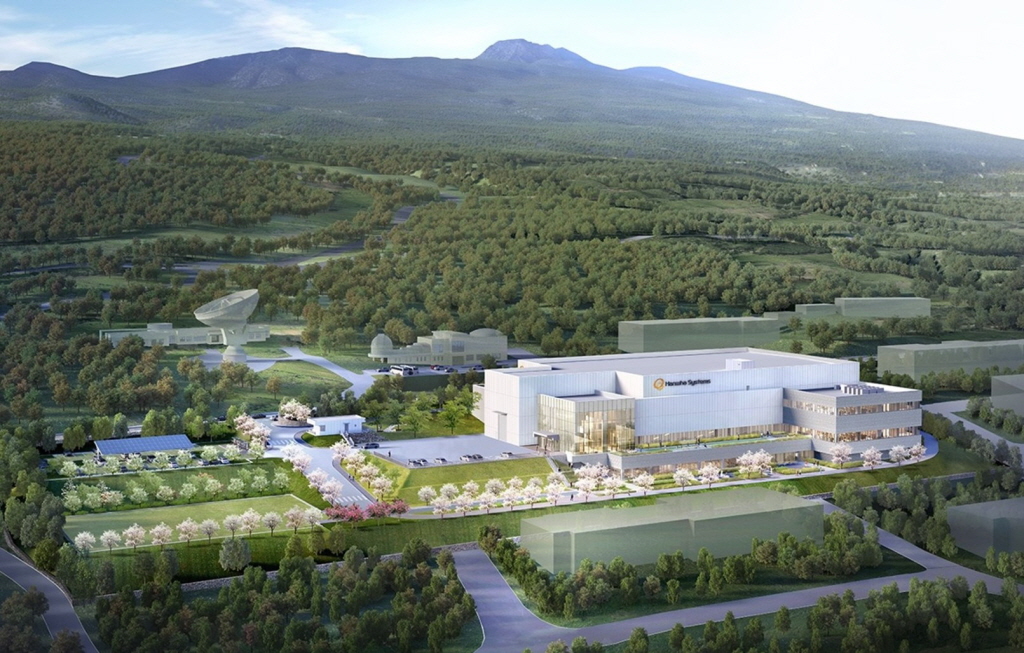한화시스템, 위성개발·제조 메카 ‘제주’ 구축
기사입력 2024.04.29 16:20

‘제주한화우주센터’ 기공, 민간 주도 위성 생산 거점 확보
한화시스템(대표이사 어성철)이 제주에 민간 주도 위성 생산 거점을 확보한다.
한화시스템은 제주특별자치도(도지사 오영훈) (구)탐라대학교 부지에서 29일 ‘제주한화우주센터’ 기공식을 개최했다.
서귀포시 하원테크노캠퍼스에 구축될 ‘제주한화우주센터’는 연면적 약 1만1,443㎡(약 3,462평)에 지하 1층·지상 2층 규모의 위성개발·제조시설로 2025년 말 완공을 목표로 하고 있다.
△지상 1층엔 위성개발·조립 및 기능·성능을 시험하는 시설이 조성되고 △2층은 우주센터 통제실 및 사무공간 △지하 1층엔 직원 식당과 부대시설이 들어선다.
제주한화우주센터는 다년간 축적된 우주사업 경험을 바탕으로 생산공정을 최적화해 위성을 월 4기에서 최대 8기까지 생산할 수 있다.
△우주환경에서 위성 운용성을 검증하는 ‘열진공(Thermal Vaccum) 시험’ △근거리에서 위성 안테나 성능을 시험하는 ‘근접전계(Near-Field Range) 시험’ 장비 등을 이중으로 설치해 생산 단계별 소요 기간을 대폭 단축 시켰다.
향후 자동화 제작·조립 설비를 추가 구축하고, 우주 헤리티지 확보함에 따라 시험 과정이 간소화되면 생산 능력이 더욱 증가 될 것으로 기대하고 있다.
한화시스템은 우주센터 구축을 통해 민간 주도로 위성을 개발하고 제조할 수 있는 생산 거점을 확보해 국내는 물론 글로벌 우주 시장 진출을 앞두고 있다.
우주산업은 첨단 기술이 적용되는 대표적인 고부가가치 산업으로 한화시스템은 △고해상도 위성 이미지 분석을 통한 토지·수자원·산림 자원의 식생상태 분석과 환경 모니터링 △재해·재난 감시 및 안보 분야 활용 △지리정보시스템(GIS) 설계를 위한 데이터 분석 △자율주행·스마트시티 구축에 필요한 위치기반서비스(LBS) 등 위성 데이터를 활용한 위성 서비스 산업 활성화에도 집중할 계획이다.
어성철 한화시스템 대표이사는 “제주한화우주센터는 위성 개발·제조의 산실(産室)로서 혁신적인 기술과 경제적 가치를 창출하게 될 것”이라며 “한화시스템은 한화 스페이스허브 및 역량 있는 우주 강소기업들과 함께 위성 개발·제조·발사·관제·서비스까지 우주산업 밸류체인(Value Chain)을 구축해 국가와 지역 경쟁력 강화에 기여하며 우주 경제 시대를 선도하겠다”라고 포부를 밝혔다.
한편 제주도는 △우주산업 육성을 위한 기업 협력 △다양한 분야의 우주 인력 양성 △우주 관련 파생 산업 개발 등 우주산업 클러스터로 발돋움하기 위해 다양한 활동을 추진 중이며 이미 여러 민간 우주 기업이 사업을 수행하고 있다.
향후 제주한화우주센터를 중심으로 다양한 관련 기업들이 모여 우주산업 클러스터가 형성되면, 대규모 일자리 창출을 통한 높은 고용 유발 및 지역 경제 활성화 효과와 함께 제주도의 우주산업 생태계를 성장시키는 촉진제가 될 수 있을 것으로 기대하고 있다.
많이 본 뉴스
[열린보도원칙] 당 매체는 독자와 취재원 등 뉴스이용자의 권리 보장을 위해 반론이나 정정보도, 추후보도를 요청할 수 있는 창구를 열어두고 있음을 알려드립니다.
고충처리인 장은성 070-4699-5321 , news@e4ds.com





.JPG)





